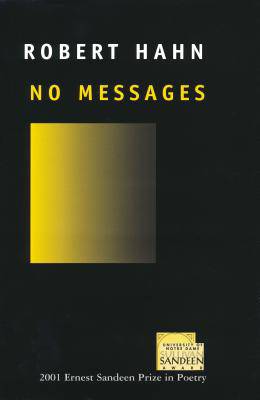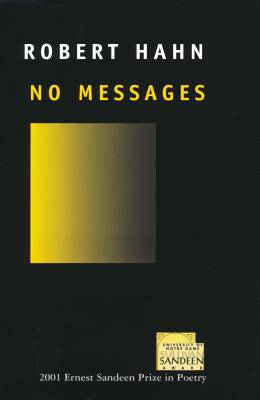
- Afhalen na 1 uur in een winkel met voorraad
- Gratis thuislevering in België vanaf € 30
- Ruim aanbod met 7 miljoen producten
- Afhalen na 1 uur in een winkel met voorraad
- Gratis thuislevering in België vanaf € 30
- Ruim aanbod met 7 miljoen producten
Omschrijving
No Messages, the 2001 winner of the Ernest Sandeen Prize, is Robert Hahn's second major collection of poetry. In commenting on Hahn's collection All Clear, Richard Howard called attention to Hahn's ability "to ground his perceptions, his discoveries in a specific circumstance . . . to reach the risen condition, the state beyond, which is the purpose of all his poems."
Howard's analysis anticipates the poems of No Messages, which focus on particular places and characters while they progress, through motions of the mind and maneuvers of language, toward a "state beyond," which involves a reformulating or a reseeing--reconfigurations of an apprehended world through language and form.
In its exploration of the seams and the seamlessness of language and reality, No Messages is an apt introduction to the new millennium. The "no messages" of the title reflects a basic tension in contemporary poetry, between its claim to exist in the realms of language and structure, and its sense of responsibility to render the world in its actuality, in a clarified or confronted state. A striking balance of this tension is found in the collection's central section, a suite of poems responding to the influence of James Merrill.
While No Messages is devoted to revisionings of the world in language, it remains grounded in circumstance and place and in the actions and convictions of historical figures. The book opens with John Knox on the beach at St. Andrews in Scotland and closes with John Brown on the bank of the Pottowatamie River in Kansas. Between these two shores, No Messages describes a series of luminous arcs connecting this world and the world beyond.
Specificaties
Betrokkenen
- Auteur(s):
- Uitgeverij:
Inhoud
- Aantal bladzijden:
- 150
- Taal:
- Engels
- Reeks:
- Reeksnummer:
- nr. 2001
Eigenschappen
- Productcode (EAN):
- 9780268036539
- Verschijningsdatum:
- 31/12/2001
- Uitvoering:
- Paperback
- Formaat:
- Trade paperback (VS)
- Afmetingen:
- 151 mm x 228 mm
- Gewicht:
- 254 g

Alleen bij Standaard Boekhandel
Beoordelingen
We publiceren alleen reviews die voldoen aan de voorwaarden voor reviews. Bekijk onze voorwaarden voor reviews.











